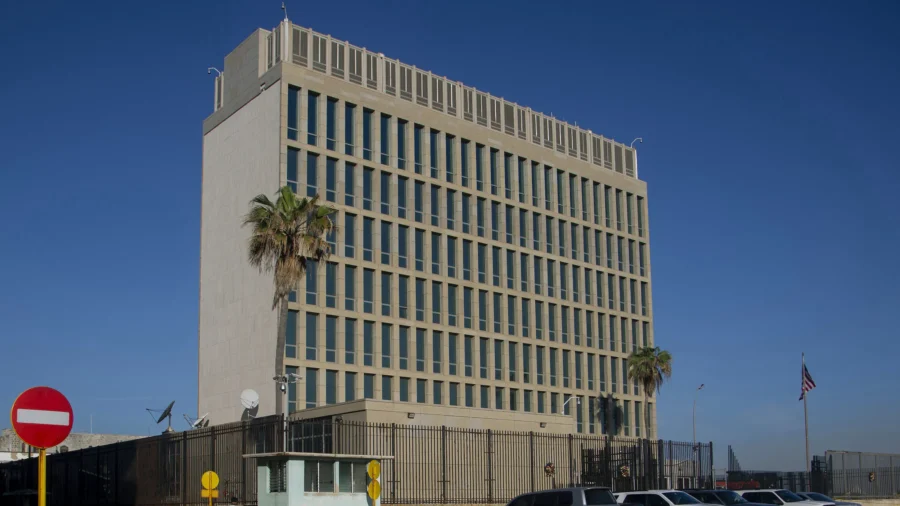A five-year-long U.S. study found that “Havana Syndrome” victims—U.S. diplomats and others—do not show the expected signs of brain damage.
The National Institutes of Health study found no pattern of degeneration, fewer white areas, or brain shrinkage in U.S. officials who complained about unusual symptoms such as difficulty thinking when on duty abroad.
The “Havana Syndrome” was named as such after the first incidents were reported by U.S. diplomats in Havana, Cuba, in 2016. Victims complained about hearing loss and ear-ringing after a sudden weird noise.
Symptoms that followed included headaches, lack of balance, difficulty sleeping, and mental confusion.
In the following years, hundreds of U.S. diplomatic and government personnel complained about similar procedures and symptoms in different countries.
Victims also report more fatigue, post-traumatic stress symptoms, and depression.
The NIH study could not explain the Havana Syndrome symptoms or their root cause, as no signs of brain damage were visible, contradicting a previous study.
The previous study found unique patterns in tissue connecting brain regions and fewer white areas in people experiencing what the State Department now calls “anomalous health incidents.”
“These individuals have real symptoms and are going through a very tough time,” said Dr. Leighton Chan, NIH’s chief of rehabilitation medicine, who helped lead the most recent NIH research. “They can be quite profound, disabling, and difficult to treat.”
Yet sophisticated MRI scans detected no significant differences in brain volume, structure, or white matter—signs of injury or degeneration—when Havana syndrome patients were compared to healthy government workers with similar jobs, including some in the same embassy. There were no significant differences in cognitive and other tests, according to findings published in the Journal of the American Medical Association.
While that could not rule out some transient injury when symptoms began, researchers said it is good news that they could not spot long-term markers on brain scans that are typical after trauma or stroke.
That “should be some reassurance for patients,” said study co-author Louis French, a neuropsychologist at Walter Reed National Military Medical Center who treats Havana syndrome. “It allows us to focus on the here and now, to getting people back to where they should be.”
A subset, about 28 percent, of Havana syndrome cases were diagnosed with a balance problem called persistent postural-perceptual dizziness, or PPPD. Linked to inner-ear problems as well as severe stress, it results when certain brain networks show no injury but don’t communicate properly. Mr. French called it a “maladaptive response,” much like how people who have slouched to alleviate back pain can have posture trouble even after the pain is gone.
Early on, there was concern that Russia or another country may have used some form of directed energy to attack Americans. But last year, U.S. intelligence agencies said there was no sign a foreign adversary was involved and that most cases appeared to have different causes, from undiagnosed illnesses to environmental factors.
Some patients have accused the government of dismissing their ailments. In an editorial in JAMA on Monday, one scientist called for more research to prepare for the next such health mystery, cautioning that NIH’s study design and the limits of existing medical technology could have missed some clues.
“One might suspect that nothing or nothing serious happened with these cases. This would be ill-advised,” wrote Dr. David Relman of Stanford University. In 2022, he was part of a government-appointed panel that couldn’t rule out that a pulsed form of energy could explain a subset of cases.
The NIH study, which began in 2018 and included more than 80 Havana syndrome patients, wasn’t designed to examine the likelihood of some weapon or other trigger for Havana syndrome symptoms. Mr. Chan said the findings don’t contradict the intelligence agencies’ conclusions.
If some “external phenomenon” was behind the symptoms, “it did not result in persistent or detectable pathophysiologic change,” he said.
The Epoch Times reported in December 2021 that Mark Lenzi, who worked as a security engineering officer under the Diplomatic Security Service within the State Department, had the first known suit against the government over the condition.
Mr. Lenzi claimed that the State Department retaliated against him and discriminated against him for exercising his First Amendment right to talk about his handicap and how the department treated him.
In late 2022, The Canadian Press reported that former Canadian Supreme Court Justice Thomas Cromwell was tapped to mediate claims against their government by nine family members of Canadian diplomats who reportedly suffered from the unexplained syndrome in Cuba.
The Associated Press and Savannah Hulsey Pointer contributed to this report.


